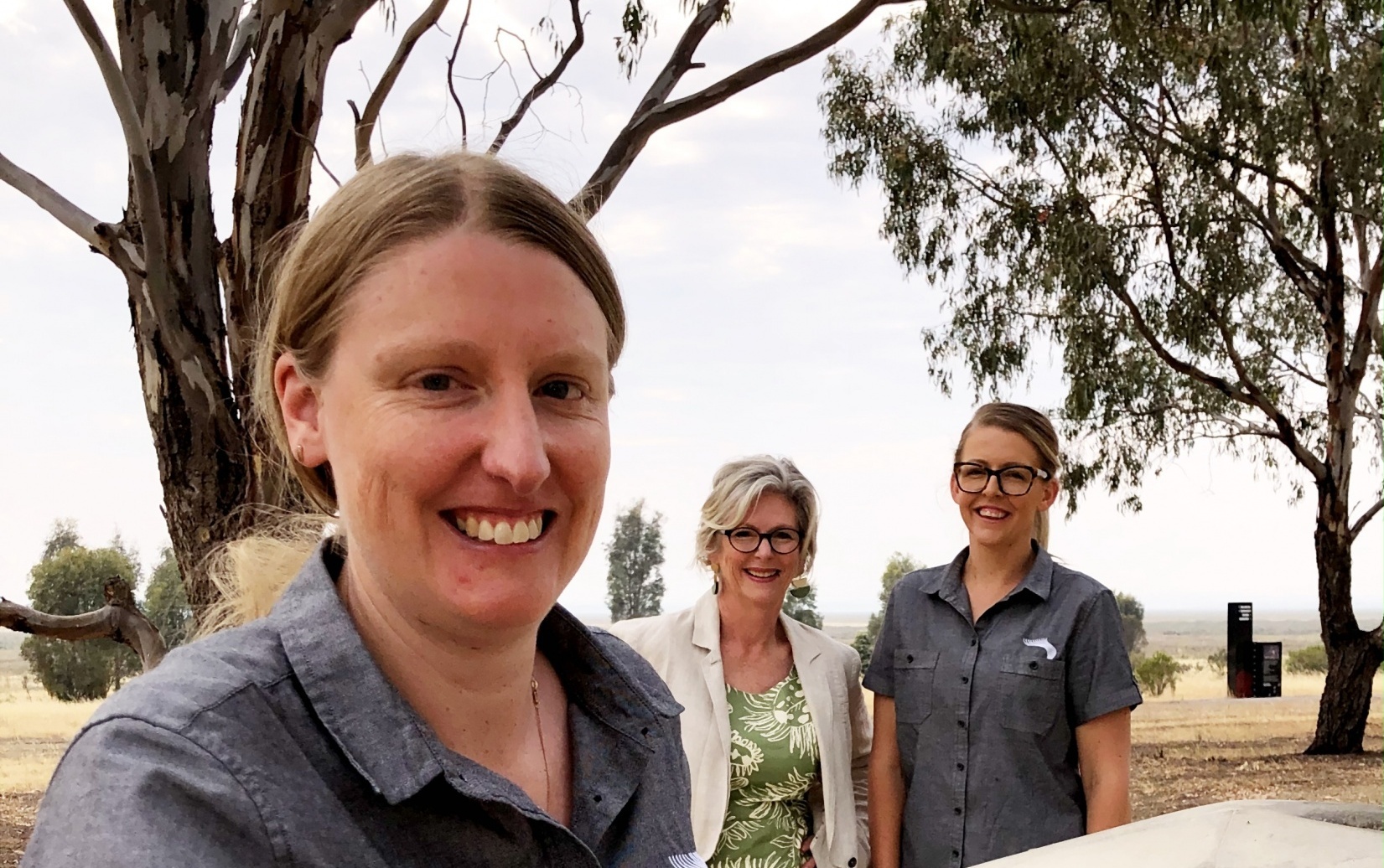
Winton Wetlands’ restoration ecologist Dr Lisa Farnsworth with Independent Federal Member for Indi Helen Haines MP and Wetlands’ visitation manager Tanya McAlpin today discussed how the Communities Environment grant will support the Wetlands’ turtle populations.
—
Helen Haines MP has announced the approval of $300,000 in community and environment project grants to Indi community groups, not-for-profits and local councils.
Grants of up to $20,000 from the $150,000 Stronger Communities Program will support 14 projects.
These range from renovations at Beechworth’s historic Plate Layer’s Cottage and seating for Myrtleford Indoor Stadium to equipping Leneva’s Border Steam and Oil Engine Club with a rainwater tank, shade sails in a Corryong park and buying a vehicle for Kinglake’s learn-to-drive program.
Grants of up to $18,200 from the $150,000 Communities Environment Program will support 10 projects.
Those funded include an ‘insurance pod’ to aid the restoration of Winton Wetlands’ turtle population, mapping and invasive species control at Koetong’s Pheasant Creek flora reserve and ‘seeding citizen science’ by Mansfield’s Up2Us Landcare group.
Dr Haines congratulated the successful applicants.
“The funding from both programs supports projects which local communities identify as important,” she said.
“The money enables people and organisations to collaborate in such positive ways to strengthen the places where they live, improve environments and see their goals realised.
“Small projects often just need a leg-up. Funding for larger projects helps to take the next step.”
Winton Wetlands restoration ecologist Lisa Farnsworth and visitation manager Tanya McAlpin welcomed the news that their application to support turtle breeding and ecology had been successful.
The $17,800 grant for creatures the pair describe as ‘heroes in a half-shell’ will be used to rebuild turtle populations in the Wetlands between Wangaratta and Benalla.
“One of the true natural reflections of steady strength, turtles are the embodiment of survival,” Dr Farnsworth said.
“But now, a combination of human changes and environmental shifts has seen a significant decline in numbers so compelling that almost half of all turtle fauna are threatened or extinct in the wild.
“One of the local species, the eastern long-necked turtle, has declined in abundance by 90 per cent since the mid-1970s, and no juvenile recruitment has occurred for over a decade.”
The grant will support the creation of a turtle pod facility – an idea conceived for the 1 Million Turtles Project by the University of Western Sydney’s Dr Ricky Spencer.
“Under serious threat from fox predation, drought and traffic, our freshwater turtle population will be protected in the earliest and most vulnerable stages of life,” Dr Farnsworth said.
The pod will be created in the former Lake Mokoan Yacht Club and provide a direct connection to education programs, volunteer involvement community engagement.
“This funding puts us in the privileged position of not only being able to provide accommodation for vulnerable turtle eggs, but also the opportunity to return the hatchlings back into the reserve – to thrive,” Dr Farnsworth said.
Dr Haines convened an Indi Grants Consultative Committee to assess and rank applications. It was made up of local council and North East Catchment Management Authority representatives.
“The committee reviewed 83 expressions of interest across both funding programs from organisations seeking funds of $1.06 million when only $300,000 was available,” she said.
“There was an outstanding selection of high-calibre projects promising to deliver a diversity of community benefits to Indi and the committee reviewed every expression of interest.”
The Stronger Communities Program was limited to a maximum of 20 projects and funded up to 50 per cent of eligible costs.
The Communities Environment Program funded 100pc eligible costs but applicants were encouraged to contribute.
